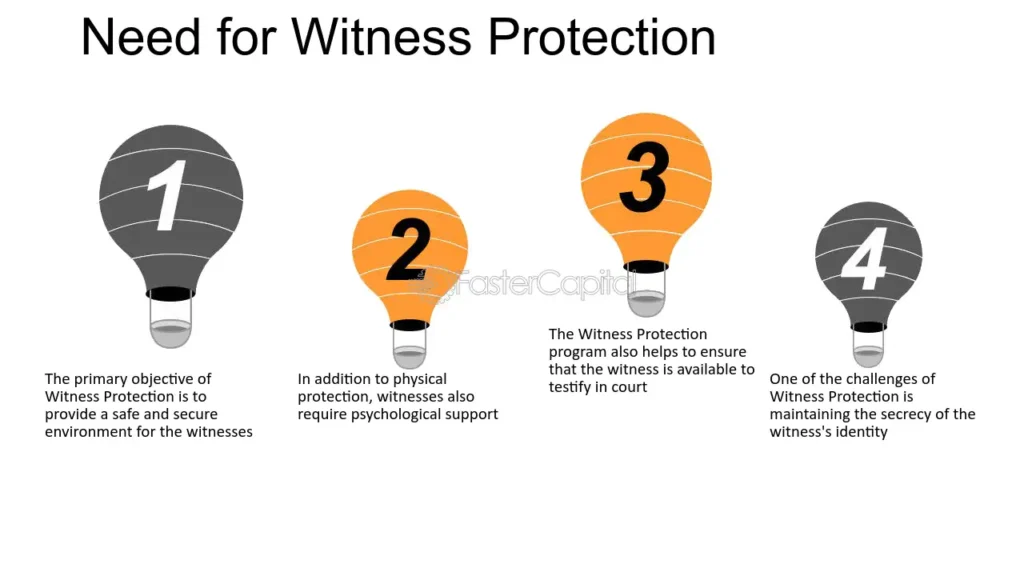Witness protection programs exist to safeguard individuals who provide crucial testimony against dangerous criminals. These individuals, often facing threats to their lives and well-being, are offered a new identity and a fresh start in a safe environment. However, this protection comes at a steep price: the complete severance of ties with their past lives, including their families.
This article delves into the complexities of witness protection, exploring the program’s structure, the stringent confidentiality measures in place, and the profound impact it has on individuals and their loved ones. We will examine the reasons behind severing ties, the safety concerns involved, and the challenges of adapting to a completely new identity.
Witness Protection Program
The Witness Protection Program (WITSEC) is a federal program administered by the United States Marshals Service. It provides relocation, financial assistance, and new identities to individuals who have provided valuable information to law enforcement agencies and are at risk of retaliation. WITSEC operates under strict guidelines and protocols to ensure the safety and anonymity of protected witnesses.
The program’s eligibility criteria are stringent, requiring individuals to have provided credible testimony that has significantly contributed to a criminal investigation or prosecution. Applicants undergo a thorough vetting process, including background checks and psychological evaluations, to determine their suitability for protection.
Confidentiality in Witness Protection

Confidentiality is paramount in witness protection. The program’s success hinges on the ability to keep the witness’s new identity and location secret. This means that family members, friends, and even former colleagues are typically not informed of the witness’s whereabouts or their new identity.
This strict confidentiality is essential for several reasons. Firstly, it protects the witness from potential retaliation by those they have testified against. Secondly, it prevents the criminal element from identifying and targeting the witness’s loved ones. Finally, it safeguards the integrity of the program by preventing leaks that could compromise the safety of other protected witnesses.
The Impact of Confidentiality
The decision to enter witness protection often results in a profound sense of isolation for the individual. Severing ties with loved ones, even temporarily, can be emotionally devastating. The inability to share their experiences or seek support from their family and friends can exacerbate feelings of loneliness and anxiety.
While the program provides counseling and support services, the emotional toll of isolation can be significant. The witness may struggle to adjust to their new life, feeling disconnected from their past and uncertain about their future.
Severing Ties with Loved Ones
The separation from loved ones is one of the most difficult aspects of witness protection. The program mandates that witnesses sever all contact with their past lives, including family and friends. This means no phone calls, emails, or visits.
The rationale behind this separation is to protect both the witness and their loved ones from potential harm. Criminals may seek revenge against family members or friends who are perceived as connected to the witness. By severing ties, the program aims to minimize the risk of collateral damage.
The Emotional Toll
The decision to leave loved ones behind can be incredibly painful. Witnesses often grapple with guilt, sadness, and a sense of betrayal. They may worry about their family’s well-being and fear that they will never see them again.
The program recognizes the emotional strain this separation causes and provides counseling and support services to help witnesses cope with the loss and adjust to their new lives.
Safety and Retaliation

The primary purpose of witness protection is to ensure the safety of individuals who have provided valuable testimony against dangerous criminals. The program recognizes that witnesses are often at high risk of retaliation from those they have implicated.
Criminals may resort to various tactics to intimidate or harm witnesses, including threats, harassment, physical violence, or even murder. Witness protection aims to mitigate these risks by providing a new identity, relocating the witness to a safe environment, and offering ongoing security measures.
The Threat of Retaliation
The threat of retaliation can be a constant source of anxiety for witnesses in protection. They may fear that their past will catch up with them, even in their new lives. The program takes these concerns seriously and implements strict security protocols to minimize the risk of harm.
Witnesses are typically relocated to areas where they have no known connections and are given new identities that are difficult to trace. They are also provided with security training and may be assigned security personnel to protect them.
New Identity
A key component of witness protection is the creation of a new identity. This involves assuming a new name, social security number, and other identifying information. The program carefully selects new identities that are unlikely to be associated with the witness’s past.
The witness is provided with a new driver’s license, passport, and other documents that reflect their new identity. They are also given guidance on how to maintain their anonymity and avoid revealing their true identity.
Adapting to a New Life
Adapting to a new identity can be a challenging and disorienting experience. Witnesses may struggle to adjust to their new surroundings, build new relationships, and establish a sense of normalcy. The program provides support services to help witnesses navigate this transition and integrate into their new lives.
Conclusion
Witness protection is a complex and multifaceted program that offers a vital service to individuals who have risked their lives to bring criminals to justice. While it provides essential safety and security, it also comes at a significant personal cost. The decision to enter witness protection often involves severing ties with loved ones, leaving behind a familiar life, and embracing a new identity. The program’s success hinges on the strict confidentiality measures in place, which are designed to protect both the witness and their loved ones from potential harm. Despite the challenges, witness protection plays a crucial role in upholding the principles of justice and ensuring the safety of those who stand up against crime.



